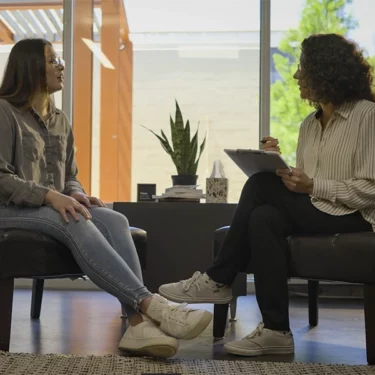Each year, through our Awards of Excellence program, we honor select individuals whose efforts to improve the lives of Americans living with mental illnesses and addictions is unmatched. We are proud to recognize Amy Anderson-Winchell, LCSW, former president of Access: Supports for Living, Inc., with the Lifetime Achievement Award for her contributions to behavioral health care.
What does the Lifetime Achievement Award mean to you?
“This award is evidence that the work of regular people makes a difference. My career has been fueled by the inspiration from the children, adults and families with complex needs who have pursued a better life for themselves, as well as those who love them. Their journeys of recovery, intertwined with the science of our industry, has informed what we have needed to do in community behavioral health.”
Who helped you during your nearly 40 years of experience in the field?
“I have had the privilege to work with remarkable colleagues at Access: Supports for Living, amazing partners at Coordinated Behavioral Health Services (CBHS) and alongside health systems leaders in the Hudson Valley of New York State, the greater metropolitan area of NYC, our advocacy organizations, local and state government leaders, and elected officials. We shared a vision to support each person to have a healthy and rewarding life so, collectively, we could all live in healthy communities.”
How would you describe your life’s work helping to advance behavioral health care?
“My life’s work is typical for our field: Striving to do all one person can to pursue social justice and support innovation, continuous learning and quality improvement in sustainable business models. A mentor, years ago, assisted me in getting comfortable with my never being satisfied with what we achieved, labeling it ‘positive discontent,’ which I embraced to drive our work forward. This has shaped my career at Access, my partnerships at CBHS and my family’s life in our community.”
What inspired you to keep moving forward in your career?
“I believe we must give voice to the importance of our work and live the core values of our industry. For me, this is based on a belief that we can impact social injustice, and thus, we must strive to transform our work to do better. Relentless focus on possibilities has driven me, and the results of shared leadership with colleagues and real strategic partners has been incredible.”
What’s the most valuable lesson you’ve learned throughout your journey?
“To realize what we don’t know and seek knowledge from those individuals who are leading research in science and clinical practice, and to seek this knowledge with partners to further advance solutions for the people we support and our communities.”
In your opinion, how much has changed since you started out?
“There have been so many changes when it comes to the knowledge and skills in our work, it’s phenomenal. Both the science and understanding of recovery have revolutionized how behavioral health clinicians practice. Policy has advanced, though lagged behind the knowledge, and the possibilities for a future where everyone receives the best care regardless of income or geography is within reach and there for advocates to lead the way.”
What do you think the future of behavioral health care holds?
“I look forward to CCBHCs being the policy of the country and for every person to have access to fully integrated behavioral health and physical health care, with the social supports needed to ensure health and wellness. And I look forward to the continued advances in science and evidence-based practices, as well as the courage of leaders and practitioners to continuously re-invent our work.”
What words of wisdom would you like to share with your peers?
“Always strive to discover what you don’t know yet and bring solutions to challenges through the power of partnerships. Also, know that this work that thousands of us do, to the best of our ability, matters.”
Guest Author
Director of Content Marketing
National Council for Mental Wellbeing



